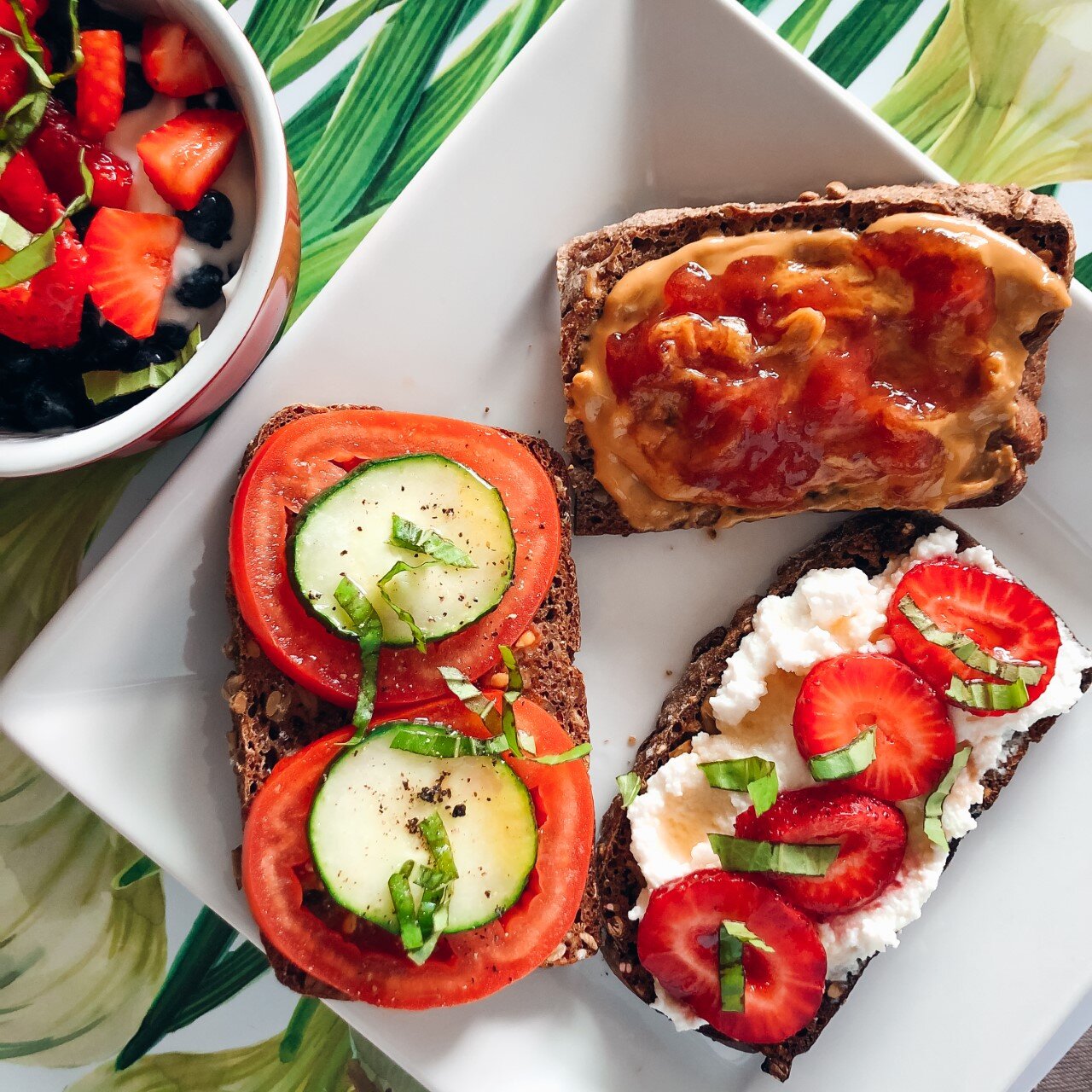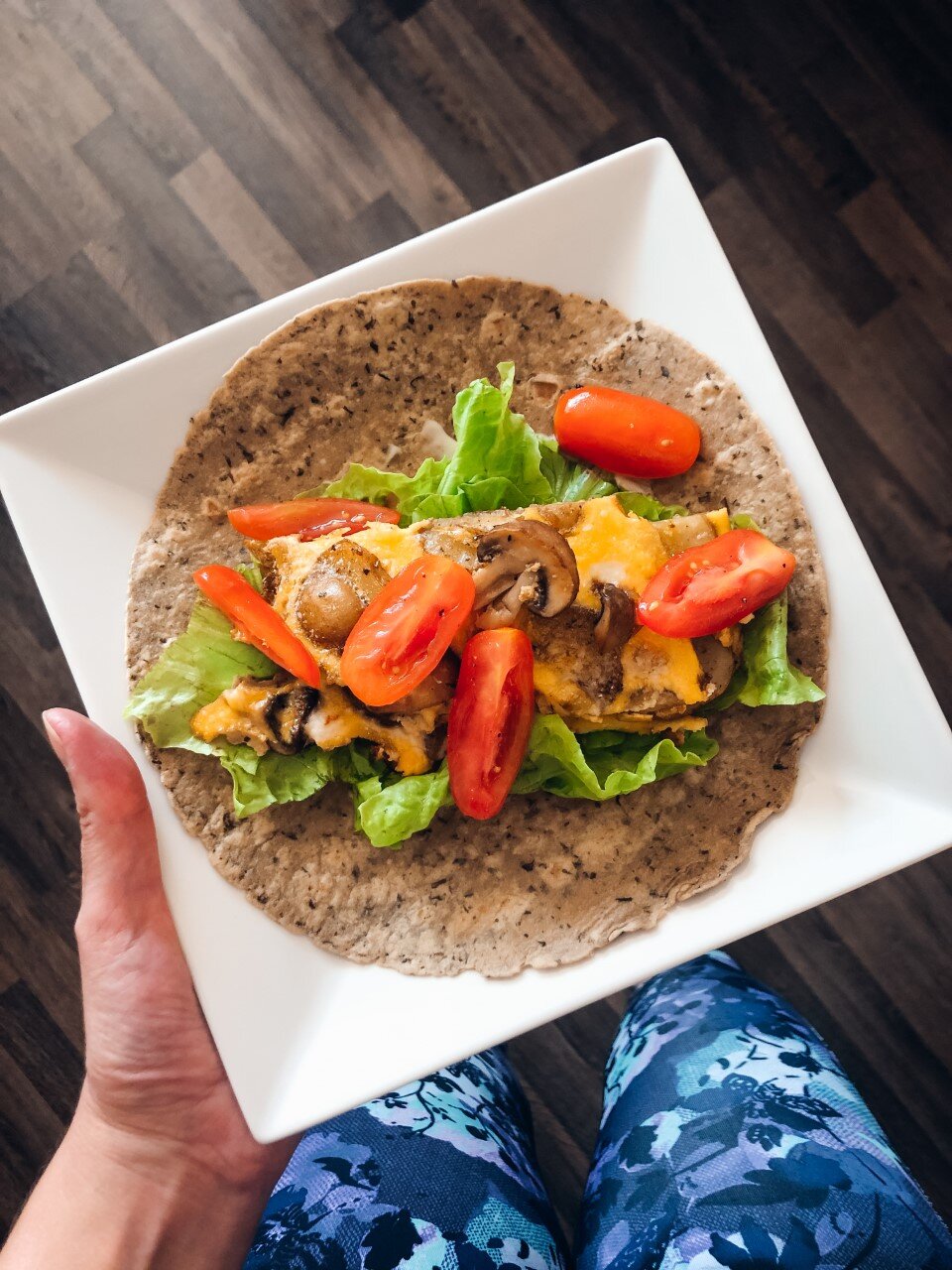Which Bread is Best?
Bread (and CARBS) are NOT the enemy!
Despite the anti-carb rhetoric still out there, bread can ABSOLUTELY be a part of a healthy diet - especially when you choose varieties that are fiber-rich and packed full of other beneficial ingredients. And I use the term “healthy” quite loosely, because really…food is just food! It is neither “good” nor “bad”, “healthy” nor “unhealthy”. It’s just food.
So...which bread is best?
There are DOZENS of varieties of breads and bread products that line the shelves and freezers in our grocery stores, but did you know that not all breads are created equal? Many types are high in fiber, vitamins, minerals and protein, while others are made from refined grains and offer little in terms of nutrition. It’s no wonder you may be confused about which bread to choose?
If you've been following me on Instagram for awhile (@benefit_pro), you'll know that I LOVE bread, so, here are my top three types and what makes them a healthy option:
SOURDOUGH - made through a fermentation process which helps break down the grain molecule and creates both pre and probiotics. This makes it easier to digest, improves the availability/absorbability of certain nutrients and it has a low glycemic index (GI).
RYE - while it closely resembles wheat, rye bread is usually darker and denser. It has a very high soluble fiber content, which helps slow your digestion of carbs and keeps you feeling full longer. The fermentation of rye sourdough produces a ton of branched-chain amino acids (BCAAs) and can decrease your body’s insulin response.
SPROUTED GRAINS - made from whole grains that have started to sprout from exposure to heat and moisture. Research shows that this process of germination makes some nutrients more bioavailable and delivers a higher amount of iron, vitamin C and antioxidants.
Some of my go-to breads include:
Silver Hills Bakery @silverhillsbakery — their breads can often be found in the frozen foods section and they also make delicious wraps and hamburger/hotdog buns!
Stonemill Bakehouse @stonemillbakehouse — based right here in Toronto, you can find a number of their products in a 3-pack at Costco
Fortinos - the fresh store-baked breads are YUM, I recommend the sourdough batard or boule
Blackbird Baking Co. @blackbirdbakingco — another local favourite, known best for their Baldwin Sourdough
Fred’s Bread @fredsbreadto - Toronto-based, using only natural and organic ingredients, plus they deliver!
OR BETTER YET? Jump on the quarantine train and make your own sourdough at home!
Finally, it is important to note that GLUTEN FREE does not equal healthy or healthier! Unless you have a formal diagnosis of Celiac Disease, there is no reason you should be opting for GF breads over some of the varieties listed above. Some gluten-free breads harbor refined flours that are high in starch and unhealthy sweeteners, so if you have Celiac Disease, be sure to choose ones that list fewer ingredients + more fiber. Otherwise, stick with traditional sourdough, rye and/or sprouted breads.
The bottom line? Some breads are “healthier” than others. So choose wisely and enjoy as a part of a balanced, restriction-free diet.
xx Melanie


